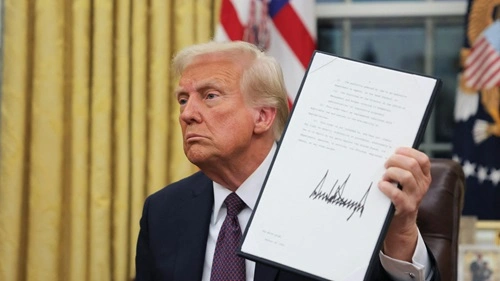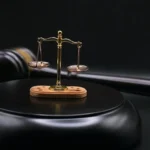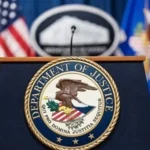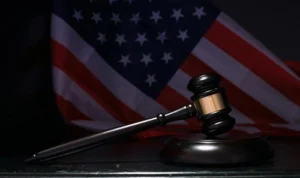In January 2025, President Donald Trump issued Executive Order 14160, titled “Protecting the Meaning and Value of American Citizenship,” aiming to redefine birthright citizenship in the United States. This executive order has sparked significant legal challenges and debates concerning its constitutionality and potential impact on individuals born in the U.S.
Overview of Executive Order 14160

Signed on January 20, 2025, the executive order seeks to deny U.S. citizenship to children born on American soil if neither parent is a U.S. citizen or lawful permanent resident. Specifically, it targets two scenarios:
- Children born to mothers unlawfully present in the U.S., with fathers who are neither U.S. citizens nor lawful permanent residents.
- Children born to mothers in the U.S. on temporary statuses (e.g., student, work, or tourist visas), with fathers who are neither U.S. citizens nor lawful permanent residents.
The order was set to take effect on February 19, 2025, applying to births occurring on or after that date.
Legal Challenges and Judicial Responses
The executive order has faced immediate legal opposition:
- State of Washington v. Trump: On January 21, 2025, the states of Washington, Arizona, Illinois, and Oregon filed a lawsuit against the Trump administration, asserting that the order violates the Fourteenth Amendment of the U.S. Constitution. On January 23, Senior Judge John C. Coughenour issued a temporary restraining order, labeling the executive order as “blatantly unconstitutional.” Subsequently, on February 6, 2025, Judge Coughenour granted a preliminary injunction, halting the enforcement of the order. The U.S. Department of Justice has appealed this decision, moving the matter to the Ninth Circuit Court of Appeals.
- CASA and Asylum Seeker Advocacy Project v. Trump: Immigrant rights groups, representing five pregnant women, filed a lawsuit in a Maryland federal court. On February 5, U.S. District Judge Deborah Boardman issued a nationwide preliminary injunction, stating that the order “conflicts with the plain language of the 14th Amendment, contradicts 125-year-old binding Supreme Court precedent, and runs counter to our nation’s 250-year history of citizenship by birth.”
Constitutional Context
The Fourteenth Amendment’s Citizenship Clause states: “All persons born or naturalized in the United States, and subject to the jurisdiction thereof, are citizens of the United States.” Historically, this has been interpreted to grant citizenship to nearly all individuals born on U.S. soil, regardless of their parents’ immigration status. The landmark Supreme Court case, United States v. Wong Kim Ark (1898), affirmed that children born in the U.S. to foreign parents are citizens by birth.
Potential Implications
If upheld, the executive order could have far-reaching consequences:
- Statelessness: Children born in the U.S. to non-citizen parents might be rendered stateless if they do not acquire citizenship from another country.
- Legal Uncertainty: The order could lead to complex legal challenges concerning individuals’ citizenship status, affecting access to education, healthcare, and employment.
- Administrative Burden: Implementing the order would require significant changes to birth registration processes and increased scrutiny of parents’ immigration statuses.
Frequently Asked Questions (FAQs)
1. What is birthright citizenship?
Birthright citizenship is the legal principle that grants citizenship to individuals born within a country’s territory, regardless of their parents’ nationality or immigration status.
2. Does the Fourteenth Amendment guarantee birthright citizenship?
Yes, the Fourteenth Amendment has been historically interpreted to guarantee citizenship to all persons born in the U.S., with limited exceptions such as children of foreign diplomats.
3. Can an executive order change birthright citizenship?
Altering birthright citizenship would likely require a constitutional amendment or a Supreme Court decision overturning existing precedent. An executive order alone is insufficient to change this constitutional right.
4. What are the current legal standings of Executive Order 14160?
As of February 10, 2025, federal judges have issued preliminary injunctions blocking the enforcement of the executive order, citing its unconstitutionality. The Department of Justice has appealed these rulings.
5. What should individuals potentially affected by this order do?
Affected individuals should consult with immigration attorneys to understand their rights and stay informed about ongoing legal developments related to the executive order.
Conclusion
The 2025 birthright citizenship executive order has ignited significant legal battles and public discourse regarding constitutional rights and immigration policy. As the situation evolves, it remains crucial to monitor judicial decisions and their implications for individuals born in the United States.













